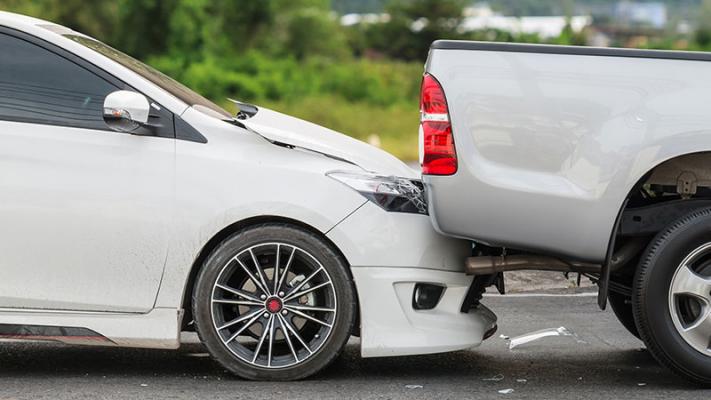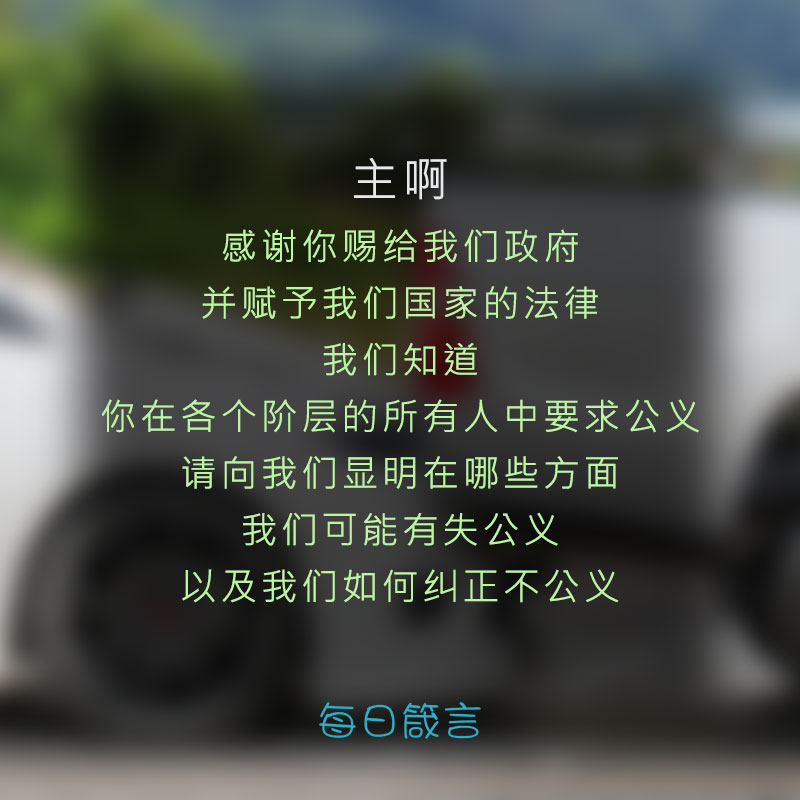

你有牛或者驴子吗?如果没有,那么这条律法就和你没有什么关系了,是这样吗?也许是吧。这是圣经中许多民事律法中的一条。在古代以色列,这些律法是为了维持社会秩序。在所有的文化中,都有关于财产的类似法律,但财产的性质可能因社会不同而有别。所有这些法律的目的都是一样的:实现民事公平。
这段经文中的法律是针对古代以色列的农业社会。如果你今天生活在一个有牛和驴的社会,你可能会希望这样的法律能生效。
但即使在不使用牛和驴的社会里,这样的法律也是适用的。这一条法规说明了公平赔偿的原则。挖坑的人应该把坑盖起来,却没有这样做。结果,有人因此损失了利益。所以,挖坑的人应该为牲畜的损失向其主人赔偿。
没有牲畜,那么汽车呢?你有一辆吗?你是否负责任地驾驶?你是否购买了相关的保险,以致如果你伤害了别人,便可以为他们的损失提供赔偿?如果是这样,你在自己的社会中就遵循了类似的律法。
主啊,感谢你赐给我们政府,并赋予我们国家的法律。我们知道,你在各个阶层的所有人中要求公义。请向我们显明在哪些方面我们可能有失公义,以及我们如何纠正不公义。阿们。

出埃及记 21:33-22:15
33“人若敞着井口,或挖井不遮盖,有牛或驴掉在里头,
34井主要拿钱赔还本主人,死牲畜要归自己。
35“这人的牛若伤了那人的牛,以至于死,他们要卖了活牛,平分价值,也要平分死牛。
36人若知道这牛素来是触人的,主人竟不把牛拴着,他必要以牛还牛,死牛要归自己。
1“人若偷牛或羊,无论是宰了是卖了,他就要以五牛赔一牛,四羊赔一羊。
2人若遇见贼挖窟窿,把贼打了,以至于死,就不能为他有流血的罪。
3若太阳已经出来,就为他有流血的罪。贼若被拿,总要赔还。若他一无所有,就要被卖,顶他所偷的物。
4若他所偷的,或牛,或驴,或羊,仍在他手下存活,他就要加倍赔还。
5“人若在田间或在葡萄园里放牲畜,任凭牲畜上别人的田里去吃,就必拿自己田间上好的和葡萄园上好的赔还。
6“若点火焚烧荆棘,以致将别人堆积的禾捆、站着的禾稼或是田园,都烧尽了,那点火的必要赔还。
7“人若将银钱或家具交付邻舍看守,这物从那人的家被偷去,若把贼找到了,贼要加倍赔还。
8若找不到贼,那家主必就近审判官,要看看他拿了原主的物件没有。
9两个人的案件,无论是为什么过犯,或是为牛,为驴,为羊,为衣裳,或是为什么失掉之物,有一人说‘这是我的’,两造就要将案件禀告审判官,审判官定谁有罪,谁就要加倍赔还。
10“人若将驴,或牛,或羊,或别的牲畜,交付邻舍看守,牲畜或死,或受伤,或被赶去,无人看见,
11那看守的人要凭着耶和华起誓,手里未曾拿邻舍的物,本主就要罢休,看守的人不必赔还。
12牲畜若从看守的那里被偷去,他就要赔还本主。
13若被野兽撕碎,看守的要带来当做证据,所撕的不必赔还。
14“人若向邻舍借什么,所借的或受伤,或死,本主没有同在一处,借的人总要赔还。
15若本主同在一处,他就不必赔还。若是雇的,也不必赔还,本是为雇价来的。
"If anyone [digs] a pit . . . and fails to cover it and an ox or a donkey falls into it, [they] must pay the owner for the loss and take the dead animal in exchange." - Exodus 21:33-34
Do you own an ox? How about a donkey? Then this law has little to do with you, right?
Perhaps. This is one of many civil laws found in the Bible. In ancient Israel, these laws were intended to keep order in society. All cultures have similar laws about property, but the nature of the property may vary from one society to another. All such laws aim at the same thing: civil justice.
The laws in this passage are specific to the agricultural society of ancient Israel. If you live in a society today with oxen and donkeys, you might want such a law in effect.
But even in societies that do not use oxen and donkeys, such laws can be useful. This one illustrates the principle of fair compensation. The pit digger should have covered up the hole. As a result, someone else lost something of value. Thus the pit digger should pay the owner for the loss of the animal.
How about an automobile? Do you have one of them? Do you drive responsibly? Are you insured so that if you harm someone else, you can provide compensation for their loss? If so, you are following a similar law in your own society.
Lord, thank you for our government and for the laws you give to our nation. We know that you seek justice at all levels and among all people. Show us where we might fail to do justice, and how we might correct injustice. Amen.
诵读: 骆云秀
片头: 张妙阳

